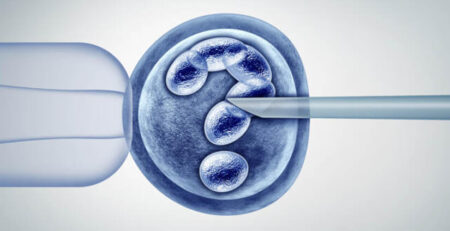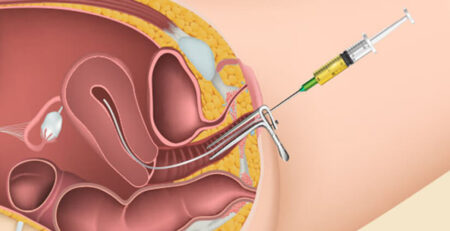IVF Pregnancy Week-by-Week Symptoms
IVF offers hope to couples dreaming of parenthood. Many couples now welcome their little ones thanks to IVF. Just like any other expectant mom, those who conceive through IVF experience pregnancy symptoms as their due date draws near.
As each month or week passes, these symptoms evolve along with the baby’s growth. What starts as a tiny embryo eventually develops into a fully-formed baby, causing changes in the mother’s body. From morning sickness to unusual cravings, symptoms can differ from person to person.
Understanding these IVF pregnancy symptoms is key to enjoying this transformative time smoothly. So, if you are ready to equip yourself with knowledge about what symptoms you could experience during this exciting phase, keep reading.
IVF Pregnancy Week by Week
While IVF is a complicated procedure, a successful transfer represents the start of a wonderful adventure. To assist you in navigating the coming weeks, here is a week-by-week summary of what to expect regarding your baby’s growth and potential symptoms.
Week 1 and 2: Preparing for Implantation
The first two weeks after IVF treatment are super important. During these weeks, your body isn’t technically pregnant. If it is a fresh IVF cycle, this phase is called the follicular phase, where the medications are given to stimulate egg production. On the other hand, if you are using a frozen embryo, medications are given to prepare the uterus lining to make it receptive.
Week 3: Embryo Transfer and Implantation
Week three is the crucial period of the IVF cycle. During this time, the embryo is transferred to the uterus. The embryo is implanted in the uterus lining at its blastocyst stage around day 5 or 6. Implantation triggers the beginning of pregnancy. It is the time when you can experience the IVF pregnancy symptoms like:
- Abdominal cramps
- Light bleeding or spotting
Week 4: Confirmation and Early Symptoms
You can take a pregnancy test to confirm the good news in Week 4. During this time, your body starts producing a hormone called beta-HCG, the pregnancy hormone. Now, you can share the good news with your loved ones.
And the IVF pregnancy symptoms? The first and foremost notable symptom that would confirm you are pregnant is missed periods. You can also experience breast tenderness, mild fatigue, or increased urination. Your doctor will regularly track hormonal levels through blood tests during this time.
Weeks 5-8: Early Pregnancy Symptoms
Welcome to the first trimester! This is when you will actually start feeling IVF pregnancy symptoms.
During this time, it’s common to experience nausea, tiredness, mood swings, and abdominal discomfort. You might also feel extra tired and notice some stretching and heaviness in your lower abdomen. So, why are you experiencing these changes? Your body is adjusting to the pregnancy, so feeling this way is perfectly normal.
And what about the baby’s growth inside the womb? This period is marked by rapid development. Major organs like the heart, brain, and spinal cord start forming. Facial features begin to take shape, and limb buds appear.
Your IVF doctor at the best IVF centre in Delhi usually performs the first ultrasound at about the 6th week to check on the baby’s development. They can see if there’s one baby or twins and whether there’s a heartbeat. Also, you need to take some supplements containing folic acid.
Weeks 9-12: Placental Development
During weeks 9 to 12, the placenta, the organ that nourishes your baby, begins to develop and take over the role of hormone production to support the growing baby.
The symptoms? Morning sickness might peak during this time. You might experience food cravings and mood swings. Fatigue can persist, and some women experience bloating and constipation as normal as well as IVF pregnancy symptoms.
In terms of the baby’s growth, the embryo officially becomes a fetus, and all major organs and systems are now present. The baby’s fingers and toes are starting to form. Ultrasounds around week 12 can show the development of these organs.
During this time, the placenta is fully developed, so you can stop taking additional pregnancy supplements you were prescribed initially.
Weeks 13-16: The Second Trimester Presented
From this point on, your pregnancy journey progresses similarly to natural pregnancies.
During the second trimester, you can start feeling better. The unpleasant feeling of morning sickness often fades away, and you might notice that you have more energy and feel happier overall. Some even talk about getting a “pregnancy glow,” which means your skin might look extra radiant. You might feel discomfort called round ligament pain as your belly grows. It’s just your body stretching to make space for your growing baby.
At this time, your baby’s soft cartilage begins to harden, muscles continue to develop, and eyelids are formed and closed. During this time, the risk of miscarriage significantly reduces; still, you need to visit your IVF centre in Delhi for the baby’s growth monitoring and follow a healthy diet.
Weeks 17-20: Growing and Blossoming
As your baby grows inside you, your belly expands, and you may notice those small kicks become more intense. You might feel something like fluttering or light tapping in your belly. Around the 20-week mark, you will probably be able to get a special ultrasound to see your baby’s growth and development.
Remember to drink water, stand up straight, and dress comfortably to accommodate your changing physique. Don’t forget to talk to your doctor about crucial things like vaccination, which can protect you and your baby from illnesses like the flu.
Weeks 21-24: Crossing the Middle Point
As your pregnancy progresses, you may notice some extra IVF pregnancy symptoms like aches and pains, particularly in your back and pelvis. It’s because of your expanding uterus.
Let’s not forget about heartburn and indigestion, which can surprise you. It’s all due to hormones interfering with your digestion. But don’t worry! Eating a healthy diet and staying upright after meals can help ease this discomfort.
Weeks 25-29: Reaching the Final Stretch
As your pregnancy progresses, you might notice some new challenges popping up. You might feel like you are running out of breath just walking up the stairs. It happens because your growing baby is pressing your diaphragm. And what about the leg pains and swollen feet? Yes, they are still around, along with the continual urge to urinate.
And guess what? After IVF treatment, It’s time to think about the next stage: the third trimester. That includes making birth plans and even enrolling in prenatal education. But don’t get too stressed; just take it one step at a time!
As your baby grows, you may find it increasingly difficult to catch your breath and obtain a decent night’s sleep. Those practice contractions may also increase, but don’t worry; they are just your body preparing for the real thing. Get used to frequent toilet journeys since your baby prepares to make their grand arrival by shifting into the delivery position.
Going through IVF and being pregnant is an extremely precious and significant experience. Each week offers unique IVF pregnancy symptoms, demonstrating how hard your body works to create this tiny marvel within you.
Tips for A Healthy IVF Pregnancy
Here are some important pregnancy tips to keep you and your baby healthy and happy:
- Don’t miss out on any prenatal check-ups. These check-ups are scheduled to monitor your baby’s growth and your overall health.
- Fill your plate with balanced meals to give your baby all the nutrients it needs to grow big and strong.
- Continue taking your prenatal vitamins as prescribed by your doctor at the best IVF centre in Delhi. They ensure you get the necessary folic acid, iron, and other vitamins and minerals crucial for pregnancy.
- Exercise regularly to maintain your physical health. Regular exercise improves circulation, reduces stress, and promotes better sleep. But also listen to your body and take rest when required.
- Practice relaxation techniques like deep breathing, meditation, or spending time in nature to manage stress levels.
- Drink a lot of water throughout the day. Staying hydrated helps deliver nutrients, maintains body temperature, and avoids constipation.
- Prioritize getting adequate sleep (7-8 hours per night) and give yourself time to relax after IVF treatment. Your body works hard to support a new life, so pay attention to its demands.
- Quit smoking and consuming alcohol entirely. These substances may hurt your baby’s development.
- Limit your caffeine intake to a modest quantity.
- Surround yourself with a supportive network of family and friends. Don’t hesitate to seek professional help if you’re struggling with anxiety or depression during pregnancy.
Wrapping Up!
Beginning an IVF pregnancy journey has a unique combination of challenges and joys. You can confidently manage this path by understanding the symptoms you may encounter weekly and staying up to date on your baby’s growth and development.
Remember to emphasize self-care, schedule frequent prenatal appointments, and speak honestly with your doctor. Each milestone takes you closer to meeting your little one, so enjoy every moment of this journey.
If you are considering IVF treatment, consult with Dr Rhythm Gupta. With ample knowledge, she will guide you through the entire procedure and IVF pregnancy symptoms so that you can make an informed decision.












